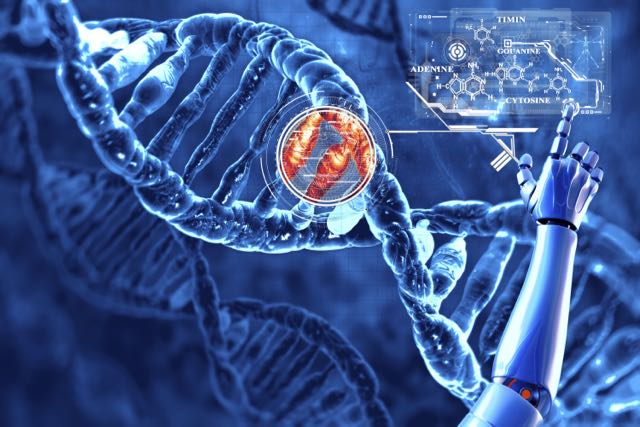A magazine where the digital world meets the real world.
On the web
- Home
- Browse by date
- Browse by topic
- Enter the maze
- Follow our blog
- Follow us on Twitter
- Resources for teachers
- Subscribe
In print
What is cs4fn?
- About us
- Contact us
- Partners
- Privacy and cookies
- Copyright and contributions
- Links to other fun sites
- Complete our questionnaire, give us feedback
Search:
Clever Genes
by Jane Waite, Queen Mary University of London

Evolution was a hot topic in Victorian times. One person interested in whether parents passed on their traits and abilities to their children biologically was Francis Galton. He was particularly interested in how people became geniuses. There is no evidence to suggest that Francis Galton met Ada, but he did spend time with her husband after her death and included Ada and her father in his book 'Hereditary Genius'.
Galton, like his half-cousin Charles Darwin, author of the famous, ground-breaking book 'The Origin of Species', was interested in evolution and was trying to figure out whether there were connections across generations. But Galton's book did not connect flying squirrels and flying lemurs, or reptiles and birds, he was interested in eminent 'men of his time' and was looking for patterns in their families. He classified judges, statesmen, men of science, musicians, painters and poets scoring them according to how gifted members of their family were. Ada's father, Byron was classified as having 'hereditary ability' as Galton judged him to have eminently gifted relations, Ada!
The ideas driving Galton's attempts to draw conclusions on whether intelligence is inherited are still rumbling along, with researchers still using family studies, particularly with twins, to investigate it. Many conclude that intelligence is one of the most heritable traits, however there is still lots of controversy in this area of research. One of the problems is that with family often comes not only genes but also wealth and opportunity, so the children of successful people have massive advantages in most societies irrespective of genetics.
New software, GCTA, Genome wide Complex Trait Analysis is providing a new way of looking at things, it estimates genetic influence in large samples of unrelated individuals. Complex algorithms churn through huge amounts of genetic data to find patterns related to traits such as height, genetic disorders and intelligence. The hunt is on for a clever gene!
Galton thought that Ada's mathematical genius was linked to her father's poetical genius. Perhaps her legacy will be to have contributed to the development of computer science and eventually the algorithms and programs that will reveal the sequence of DNA, that links their intelligence for real. Let's vote to name it the Ada gene. On the other hand perhaps the computers will show there is no such gene once and for all. Most likely we will find intelligence comes from a complex mix of genetics and upbringing.
One thing is clear, irrespective of genetics, anyone can be successful at anything if they are single-minded enough. The amount of effort you put into practicing skills matters far more than any innate advantages you may or may not have in your genes. So whether it is playing the violin, playing football or writing programs, by the time you have practiced for 10,000 hours with support from a good teacher, every one will be proclaiming that you are a born genius.
'Byron, Lord. Very ill-educated at home, did not show genius at Harrow; his "Hours of Idleness" were published at 19 and the "English Bards and Scotch Reviewers", which made him famous at 21. Died at 36.
Grandfather. Hon. Admiral Byron, circumnavigator, author of the "Narrative".
Grandson. Captain Byron; imprudent and vicious.
Father: Was strange, proud, passionate, and half mad. "If ever there were a case in which hereditary influences, arising out of impulse, passions, and habits of life, could excuse eccentries of character and extremes of conduct, this excuse must be pleaded for Byron, having descended from a line of ancestry distinguished on both sides by everything calculated to destroy all harmony of character, all social concord, all individual happiness' (Mrs Ellis)
Daughter: Ada, Countess of Lovelace; had remarkable mathematical gifts.'
- Hereditary Genius by Francis Galton, 1869.
As a child Ada had a pet cat called Puff. In letters to her mother she referred to Puff as her mother's "granddaughter"!
"Your granddaughter has taken up all her kittens into a very nasty dirty hole in the roof of the house when nobody can get at them, she stays with them all day long and only comes down for her meals, I suppose their bed is made of cobwebs, and I think that Puff cannot have a very refined taste. ... Your very affectionate Carrier Pigeon A Ada Byron"


